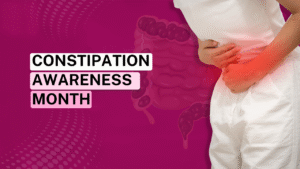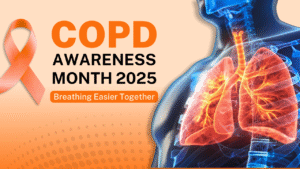What is it?
In June of 2018, the World Health Organisation (WHO) released the 11th edition of its International Classification of Diseases, and for the first time added “ageing”. The classification of ageing as a disease paves the way for new research into novel therapeutics to delay or reverse it.
Nicotinamide mononucleotide (NMN) is a naturally occurring form of vitamin B3 that is studied for slowing ageing and for preventing age related diseases.
Nutrient sensing systems have been an intense focus of investigation, including sirtuins, a family of seven proteins critical to DNA expression and ageing, which can only function in conjunction with NAD+ (nicotinamide adenine dinucleotide). NAD+ is a coenzyme in all living cells which is required for numerous biological processes.
David Sinclair, Harvard University’s noted anti-ageing researcher, whose research on resveratrol, NAD+ and sirtuins is world renowned, is also conducting human trials. He takes NMN supplements himself, claiming that his lipid profile has improved dramatically and he feels more energetic as a result.
Where is it found? Why take supplements?
In mammals, most NMN is synthesised from vitamin B3.
Like many other supplements, such as creatine, NMN is naturally present in small amounts in dietary sources, but these amounts are much lower than those found in the supplements used in clinical studies for improving longevity.
Trace amounts (concentrations no more than 0.002% by weight) are found in foods including avocados, broccoli, tomatoes, cucumbers, cabbage, mushroom, soybean, pear, orange, cherry, shrimp, scallops, beef, salmon and edamame. The amount of NMN obtained from food is likely ≤2 mg/day.
Dietary NMN is converted to NAD+.
NAD+ levels naturally decline with age, reaching less than 50% of youthful levels by middle age. Decreased NAD+ levels have been attributed to increased inflammation and oxidative stress as well as to the development of age-related conditions such as hypertension, cognitive decline, and type 2 diabetes.
NMN is taken as a supplement to increase levels of the coenzyme NAD+.
Functions and Benefits:
After NMN is taken orally, it is absorbed into the bloodstream and rapidly converted to NAD+, which is an important cofactor for many biological processes, including immune response, DNA repair, cell division, mitochondrial function, epigenetic (influencing genes) and redox reactions (oxidative stress related).
As NAD+ levels naturally decrease with age, the activity of enzymes dependent on NAD+ for their function also decreases. Since reduced activity of NAD+ consuming enzymes (e.g. sirtuin 1) has been linked to the ageing process, restoring NAD+ levels to more youthful levels is thought to slow down the ageing process.
Some clinical research has shown that NMN increases physical ability in ageing populations, improves cardiovascular disease biomarkers such as arterial stiffness.
Although these results have been promising and specially in experimental rats, additional large-scale trials are needed to better understand the benefits in humans.
NMN has been shown to slow age related decline by bringing about the following effects:
- improved insulin sensitivity
- reduced inflammation
- improved mitochondrial function
- improved cognition and brain health
Dosage:
Initial NMN trials in humans tested doses of up to 500 mg NMN daily, with no adverse effects; more recent human trials have tested doses approaching 1000 mg/day.
NMN has been shown to be safe in doses up to 1200 mg daily for 6 weeks and 900 mg daily for 8 weeks. Doses of 2000 mg daily have been taken for up to 14 days with no adverse effects.
In short, NMN has been tolerated orally in doses of 250–1200 milligrams daily for 4–12 weeks.
Safety
The main drawback to NMN is a lack of long-term studies in humans.
High-dose NMN supplementation has been linked to acute liver toxicity.
It is well known that NMN cannot pass through the skin barrier directly due to its high water solubility. However, many NMN skin care products, including essence, facial masks, moisturising water and sunscreens are widely sold.
On 10 November, 2022, the US FDA declared that β-NMN is prohibited as a health supplement. Based on the “Federal Food, Drug & Cosmetic Act,” FDA concluded that NMN was authorised for investigation as a new drug. This led to the exclusion of NMN as a dietary supplement.
Takeaway
Given it’s status as a top-selling anti-ageing product in recent years, human clinical trials on NMN have generated considerable interest. To date,10 human clinical trials have been published with an additional 13 completed but unpublished trials and 11 ongoing trials.
On the whole, although NMN has demonstrated anti-ageing properties in both cellular and animal models, there is a pressing need for additional clinical trials to determine its safety and efficacy in humans.
Anti-ageing cannot be achieved solely with a magic bullet like NMN. It takes a combination of lifestyle factors including supplements to achieve and potentiate that effect.
Optimising your baseline diet, stress management techniques, sleep and exercise regimes are crucial before considering anti-ageing supplements.
If you’re still keen to explore NMN as a supplement, consult a qualified dietitian. Additionally, consult your doctor if you are under treatment for a medical condition.
~Shwetha Bhatia, Registered Dietitian (Indian Dietetic Association).





